Prime Minister Shehbaz Sharif has officially launched 10 million digital wallets and SIMs for the beneficiaries of the Benazir Income Support Program (BISP). This major initiative is designed to bring transparency, speed, and efficiency in providing financial assistance to poor families across Pakistan. The government says this move will help build a cashless economy and protect beneficiaries from fraud and middlemen.
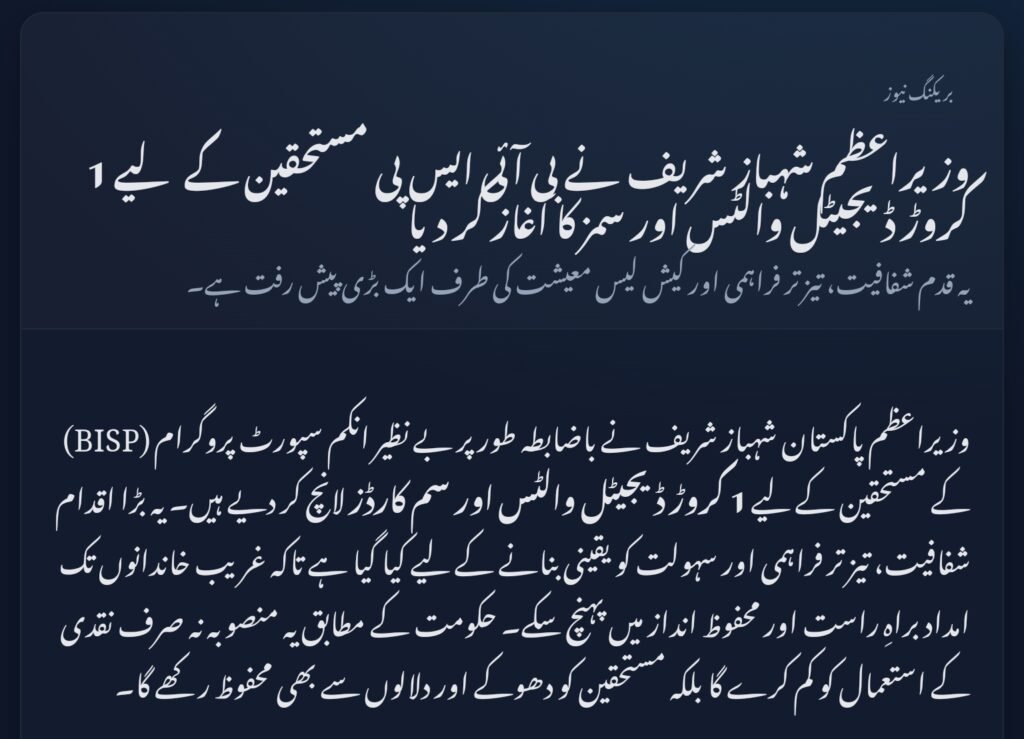
Table of Contents
A Step Towards Cashless Pakistan
While addressing the launch ceremony in Islamabad, PM Shehbaz Sharif called this initiative a “great leap towards a cashless economy.” He said that when money is transferred digitally, it not only saves time but also removes corruption, reduces delays, and ensures that the poor receive their funds without any hurdles.
The Prime Minister recalled that during Ramazan, 78% of the relief package was successfully distributed through digital channels despite resistance from some groups. This, according to him, proved that Pakistan can adopt modern solutions for better governance.
He also congratulated BISP Chairperson Senator Rubina Khalid, the State Bank of Pakistan, IT Ministry, local banks, and international partners such as GIZ for their contributions.
Read More: PM Electric Bike Scheme
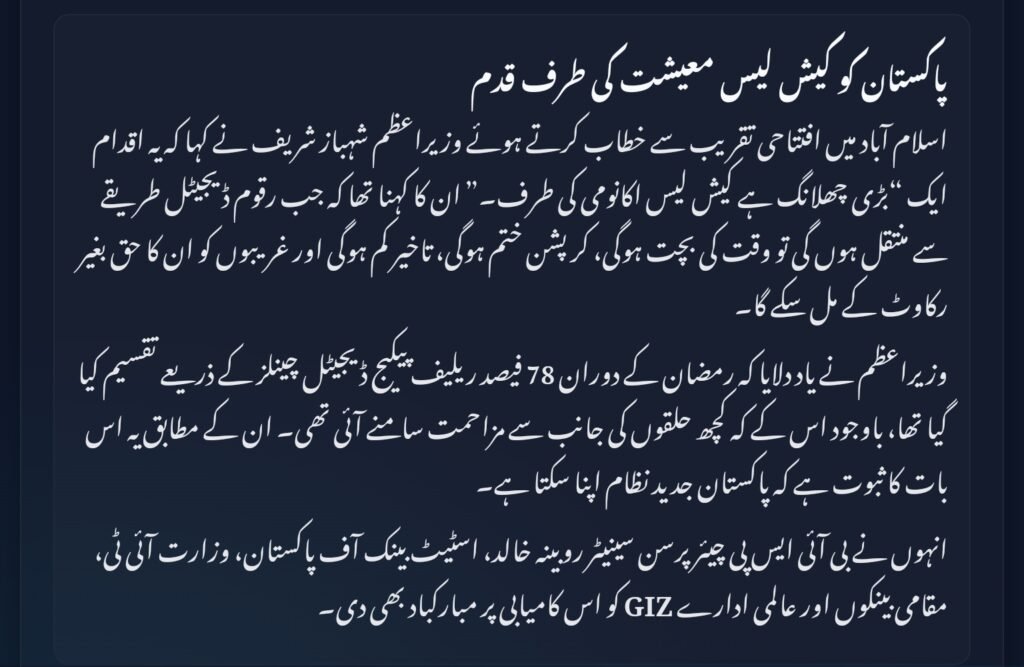
Key Features of the Digital Wallet Initiative
The Prime Minister performed the inauguration with a symbolic palm touch, in the presence of federal ministers, BISP leadership, and partner institutions. He described this launch as a historic milestone inspired by the vision of Shaheed Mohtarma Benazir Bhutto, who always worked for women empowerment and social protection.

Main Features of the 10 Million Digital Wallets and SIMs
| Feature | Details |
| Digital Wallets | 10 million wallets linked with CNICs and biometric verification |
| SIM Distribution | 10 million free SIM cards for BISP beneficiaries |
| Fraud Protection | Biometric system to stop fake or duplicate entries |
| Pilot Phase | Started in Hyderabad, Sukkur, and Rahim Yar Khan with Jazz/Mobilink |
| Women Empowerment | Wallets linked with women’s CNICs to ensure recognition and inclusion |
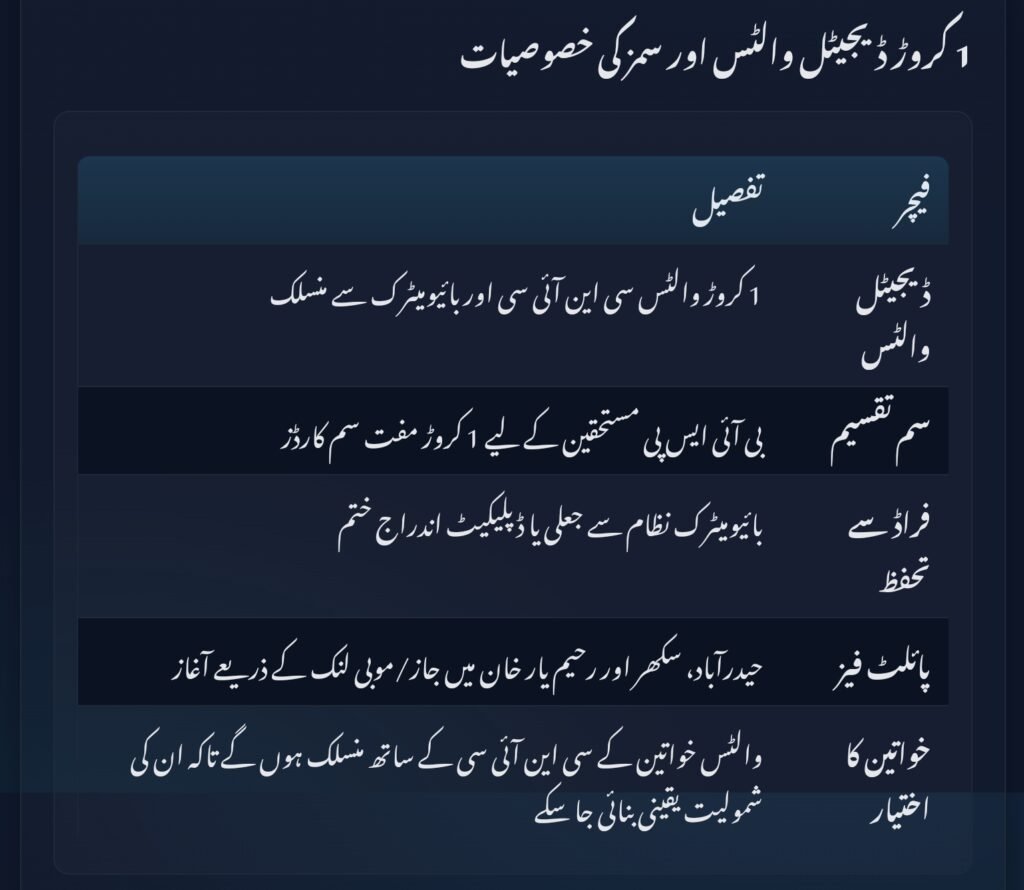
PM’s Vision: Linking BISP with Education and Health
PM Shehbaz Sharif stressed that BISP should not just remain a cash transfer program. He suggested adding conditionalities for education and health. For example, if a family receives financial support, it should be ensured that all children attend school, and health checkups are regularly conducted.
According to him, this would turn BISP into a real long-term legacy, helping future generations instead of just providing temporary relief. He also advised that the implementation cycle of new reforms should be cut down from 8–10 months to just 4 months.
Read More: CM Punjab E-Bike Scheme 2025
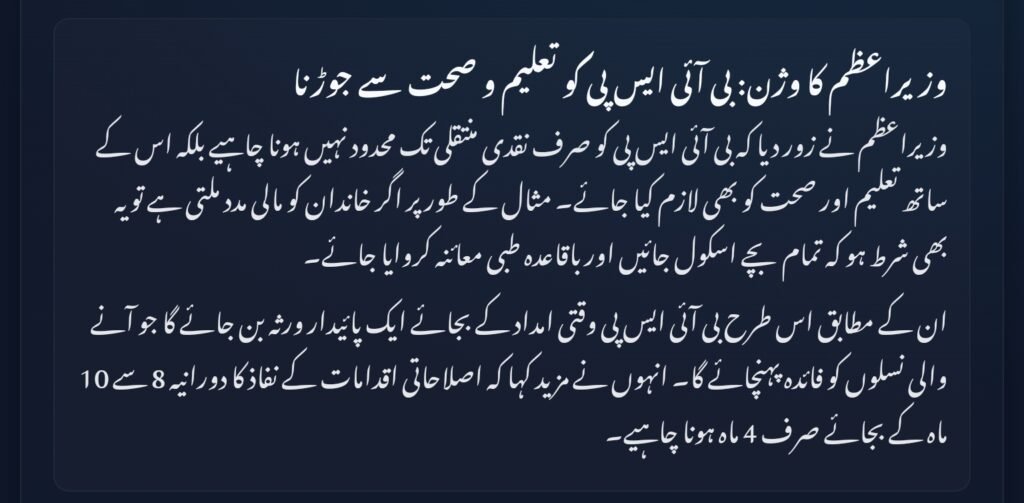
Why Digital Wallets Matter for Pakistan
Digital wallets are not just about receiving money; they open doors for a bigger transformation. Beneficiaries will now have:
- Direct access to funds without waiting in long queues.
- Transparency and security through biometric verification.
- Opportunity for digital literacy, especially for women unfamiliar with mobile banking.
- Future financial inclusion, such as applying for micro-loans or savings schemes directly through wallets.
Senator Rubina Khalid highlighted that this initiative gives women recognition in the national database. “This is not just about aid; it is about social and economic empowerment,” she said.
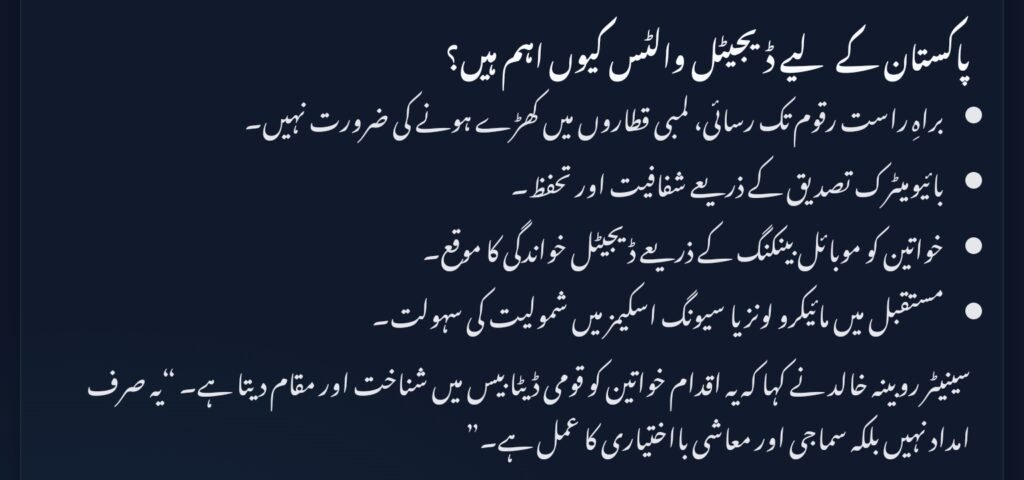
Quick Facts About the BISP Digital Wallet Launch
| Category | Information |
| Program Name | BISP Digital Wallet & SIM Initiative |
| Launched By | Prime Minister Shehbaz Sharif |
| Beneficiaries | 10 million families |
| Support | State Bank, IT Ministry, local banks, Jazz/Mobilink, GIZ |
| Main Goal | Cashless economy, transparency, women empowerment |
| First Rollout | Hyderabad, Sukkur, Rahim Yar Khan |
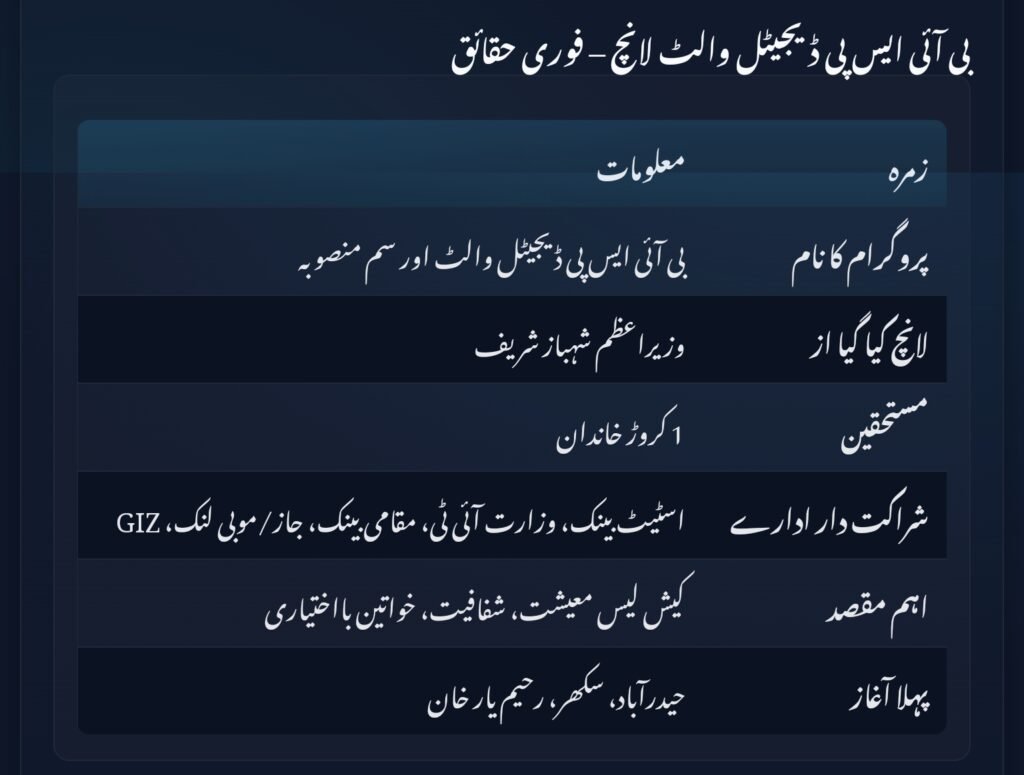
A Tribute to All Stakeholders
The Prime Minister acknowledged the efforts of all institutions that made this project possible. From the State Bank and IT Ministry to private banks and telecom companies, every stakeholder plays a role in ensuring that the system is safe and functional.
BISP Secretary Amir Ali Ahmed briefed that the wallets would be developed through CNICs and protected by biometric verification to prevent identity theft. He further explained that free SIM cards would make it easier for beneficiaries to use mobile wallets and receive real-time updates about their payments.
Read More: BISP 8171 September 2025 Update
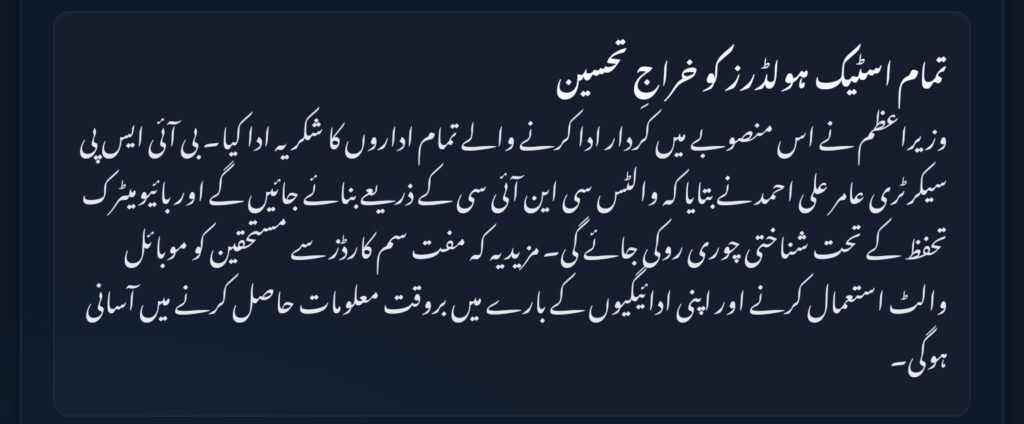
Final Thoughts
The launch of 10 million digital wallets and SIMs under BISP is more than just a financial initiative—it is a shift in Pakistan’s governance model. By adopting digital solutions, the government is aiming for a transparent, efficient, and corruption-free welfare system.
If properly implemented, this step can reduce dependency on cash, empower women, ensure children’s education, and encourage a habit of savings among low-income families. It will also bring Pakistan closer to global practices of social protection and financial inclusion.
This initiative, in the words of PM Shehbaz, is not just about distributing money but about raising an army of workers and dreamers who will build the future of Pakistan.
Read More: BISP 8171 Payment Schedule
FAQs
Q1: What is the BISP Digital Wallet?
It is an electronic account linked with beneficiaries’ CNICs where financial aid will be deposited directly.
Q2: How many people will get these wallets and SIMs?
Around 10 million BISP beneficiaries will get wallets and 10 million free SIMs.
Q3: Will women receive the wallets in their own names?
Yes, wallets are linked with women’s CNICs to ensure recognition and empowerment.
Q4: Where is the project starting first?
In Hyderabad, Sukkur, and Rahim Yar Khan as a pilot phase.
Q5: How does this stop corruption?
Through biometric verification and direct transfers, eliminating middlemen and fake entries.
